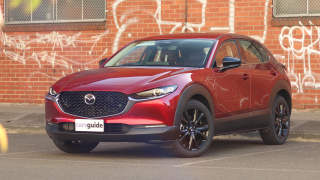
Why you're still better off not using Bluetooth while you're driving

Truly, some of the behaviours that human beings exhibit are so self-defeating, so spectacularly lacking in logic, that if we observed them in other, supposedly lesser animal species, we’d find them as hilarious as lemmings throwing themselves off cliffs, or chimpanzees throwing their poop at one another.
Ask any reasonable, adult homo sapiens whether it’s sane to drive a big, heavy, potentially deadly weapon of a vehicle down a busy road with one or both eyes closed, and they’d surely tell you that it is not.
But ask them if, the last time they received a phone call they perceived as important while driving they pulled off the road to take that call, or read that text, or replied to it on the move, and their answers, in the main, will defy logic.
Pulling over to take phone calls, or to write texts, seems like the behaviour of either wowsers or super humans these days, even though it was merely common courtesy back in the early days of brick-sized mobile phones.
We know it’s the wrong thing to do - like cheating on our taxes or drinking tequila or voting for Pauline Hanson - yet we drive and use phones anyway. It’s like some giant Darwinian experiment, frankly, with recent spikes in the road toll in countries like the US widely blamed on the vague-sounding term “distracted driving”.
One of the things we really like to kid ourselves about is the idea that talking on a phone hands-free, using modern Bluetooth in-car systems, is somehow vastly safer than using a phone shoved to our ear. The fact is that having a conversation of any kind while driving equates to doing two things at once, something many humans just aren’t very good at.
Here comes the judge
A judge in the UK recently spoke out about the dangers of using hands-free mobile-phone systems after sentencing a woman who killed a motorcyclist coming in the opposite direction while having an 'in depth' conversation via Bluetooth.
Samantha Ayres, 34, was still mid-conversation with a friend - who gave evidence against her claim that she had hid a pothole and lost control, causing her to drive into 26-year-old David Kirk - and detectives concluded she had become distracted by her hands-free call.
Judge John Pini QC said: "There has to be an immediate custodial sentence. The fact that using a phone (hands free) is lawful does not alter the fact it is an actual distraction. The guidelines make that clear.”
A recent study by the University of Sussex in England also found that conversations of any kind can be distracting, even if they are hands-free, particularly when they require a driver to use mental imagery.
“A popular misconception is that using a mobile phone while driving is safe as long as the driver uses a hands-free phone,” Graham Hole, a psychology lecturer and an author of the study said. “Our research shows this is not the case.”
The conclusion was that the human brain has a limited capacity for visual processing.
The study found that when drivers are engaged in conversations that require them to summon visual images behind the wheel their distracted brains fail to recognise road hazards, and thus will react slower.
Some very clever experiments were conducted, which involved groups of people in a driving simulator completing a driving course, one group with no distractions, then another group who were asked true or false questions that involved summoning mental images - "In a rowing boat, the rower sits with his back to the front of the boat,” was one example.
A third group were asked simpler true or false question that involved no mental imagery, and in all three cases the researchers measured how fast the drivers hit the brake pedal when they recognised a hazard on the simulated road.
A second, similar experiment was conducted which tracked the eye movements of participants under the three different conditions.
The researchers found that the drivers who were not distracted reacted far faster and were quicker to spot hazards, while those who were asked questions involving mental images had much slower reaction times and were more likely to “look but fail to see” hazards.
Those distracted drivers were also far more likely to focus entirely on the portion of road directly in front of them, reducing their use of peripheral vision.
The conclusion was that the human brain has a limited capacity for visual processing.
Professor Hole explained that when a driver is tasked with recognising road hazards while mentally picturing some aspect of a conversation that imagery “competes for processing resources”.
“Conversations are more visual than we might expect, leading drivers to ignore parts of the outside world in favour of their inner visual world,” Hole said.
This doesn’t, however, mean that drivers have to operate in silence and tell their passengers to remain quiet at all times.
“Chatty passengers tend to pose less of a risk than phone conversations,” Hole added.
Passengers in the car with you “will usually moderate the conversation when road hazards arise,” Hole said, while someone you’re talking to on the phone obviously has no idea what you’re faced with and yaps on regardless.
“The only 'safe' phone in a car is one that's switched off,” Hole concluded, pretty much summing up the way we should treat Bluetooth technology. But probably won’t.
But surely Bluetooth is safer than holding the phone in your hand?
Safer and far more legal, obviously. Interestingly, it turns out that that our ability to “self regulate” means that holding a phone while driving is even more dangerous than we’d previously imagined.
A recent study at the Queensland University of Technology in Brisbane, using its high-tech driving simulator, found that people who use Bluetooth to make a phone call tend to slow down and drive more cautiously.
Terrifyingly, however, people who looked down at their phone screen while driving tended to speed up while doing so. Again, some human behaviour is just too stupid to be true.
The study analysed 35 drivers aged 18 to 29 at QUT’s Centre for Accident Research and Road Safety-Queensland.
Lead researcher Oscar Oviedo-Trespalacios points out that previous studies had not taken into account people’s ability to self regulate their behaviour and reported that the study had found such behaviour being demonstrated in the simulator by people using hands-free devices.
Those behaviours included slowing down while on the phone and keeping very central in their lane.
“But, overall, driving and using a phone still negatively affects both activities,” Oviedo-Trespalacios said. “It’s more efficient – and of course safer – to just pull over in an appropriate place to use your phone quickly and then resume your journey.
“We found most drivers actually increased their speed while distracted by looking at and holding their phone.”
The study also found that drivers who held their phones were more likely to use them on the open highway than on curvy country roads or in busy city environments.
“Road-traffic conditions appear to play a vital role in self-regulation of secondary tasks and associated driving performance,” the researchers wrote in their paper.
The scary fact is, of course, that it doesn’t seem to matter how often we’re presented with the facts, or how much research is done. Tomorrow, out on the road, you will no doubt see someone talking on their phone while driving, or appearing to talk to themselves while using Bluetooth.
All we can do as individuals, of course, is to reduce our own risks by making the more intelligent choice, and parking the phone while driving.










Comments